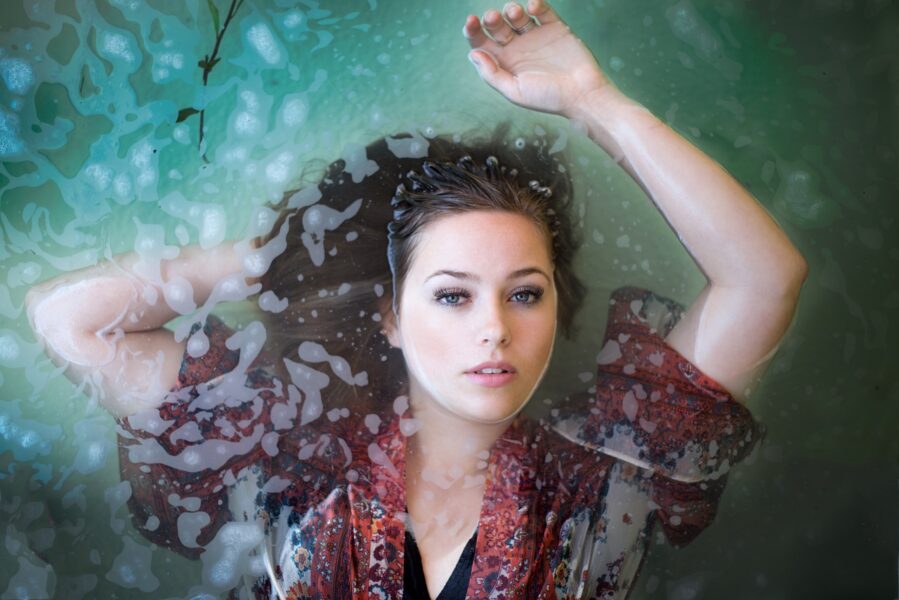
A growing absence; it’s quite paradoxical. A hole that bores itself bigger and enlarges a decline in the earth. Highschool girls have fallen into a few distinct categories in film: Alpha Bitch, Hippie Witch, Adorkable Nerd, Airhead Ditz, Goth; we can recognise them all, and we understand them all. However, a new contender enters the ring in the twenty-first century. She is bleak. She is intelligent. She is off-putting. She is witty. She is a bleak girl. She is, or feels like, that growing absence, and can quote Nietzsche to explain this phenomena.
Nowhere do we see such a clear discussion with these highschool archetypes than in Netflix’s Sex Education. Show writer, Laurie Nunn, explains the throwback to “American films and TV shows,” as an intentional choice; indeed, one cannot help but be thrust back to the turn of the century, where Cher, Elle, and Cady prance around the screen before undertaking law or reading a book. Two decades later, Ruby becomes a parody of these fading images of mocking femininity, and Maeve takes centre stage. Maeve Wiley is literary and compulsively pessimistic, and a refreshingly real character in the hyperbolic, highschool stratum. Serving as the on-and-off romantic interest, one has come to expect Maeve’s character would oscillate Otis Milburn’s narrative pull, but this couldn’t be further from the truth. Instead, Maeve has her own conflicts and struggles, and we receive a morose, witty construction whose presence transcends the aforementioned Goth or Adorkable Nerd, and prevails as something more recognisable to a modern audience, something true.
Maeve Wiley is literary and compulsively pessimistic, and a refreshingly real character in the hyperbolic, highschool stratum.
We see this again in the recent Spider Man Trilogy (MCU), where the long-standing tradition of Spiderman’s love-interests socially usurping Parker is radically disrupted by Zendaya’s MJ. In the series of adaptations, spanning from 2017 until 2021, MJ occupies the archetype of bleak girl. Rarely seen without a fittingly bleak work, Somerset Maugham’s Of Human Bondage was a particular favourite of mine, “the MJ we deserve,” according to Vanity Fair, is bound up in new, and far more interesting, depictions of the highschool girl’s identity.
Feminine viewers don’t want to be degraded to mean or pretty, they want emotional depth.
While we can idealise that the film industry is awakening to the problematic and oversaturated Ditz trope, it seems far more probable that the Ditz simply won’t cut it in our modern culture. Feminine viewers don’t want to be degraded to mean or pretty, they want emotional depth. Rather fortunately, the Ditz is drowned beneath the depths of a girl who loves Nietsche, and is devoured by a girl who bites. It seems as if the Ditz will only continue to exist as a ghost, now, through parody or satire (see Brittany in Bottoms). May the Ditz rest in irony, in the absurd space that diminishes women to a pair of high heels and nothing more.


